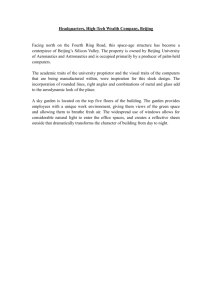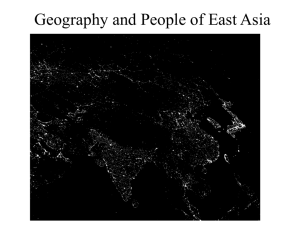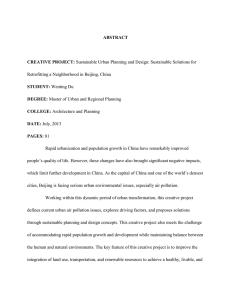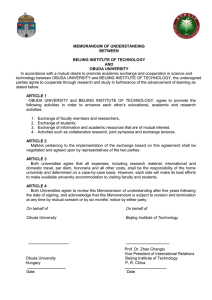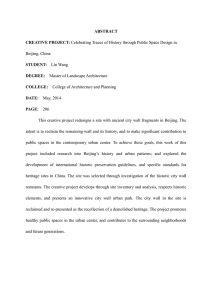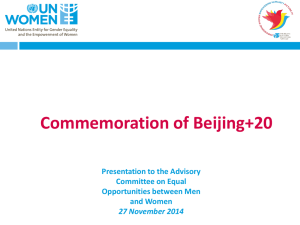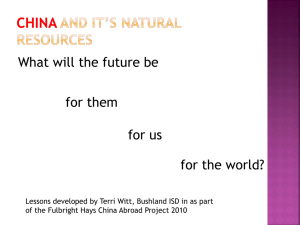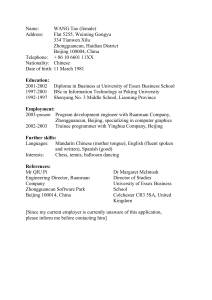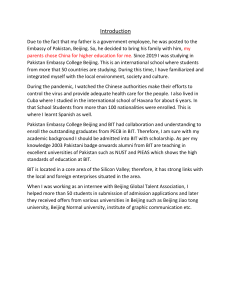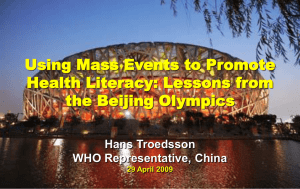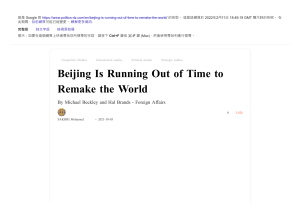Personal Statement
advertisement
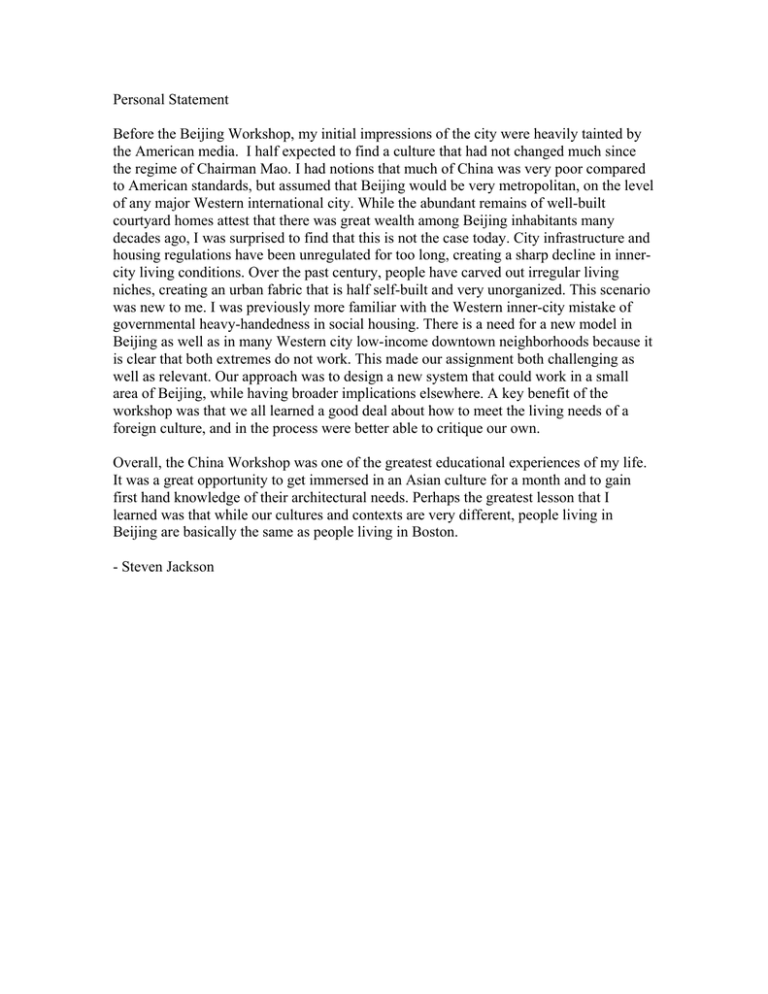
Personal Statement Before the Beijing Workshop, my initial impressions of the city were heavily tainted by the American media. I half expected to find a culture that had not changed much since the regime of Chairman Mao. I had notions that much of China was very poor compared to American standards, but assumed that Beijing would be very metropolitan, on the level of any major Western international city. While the abundant remains of well-built courtyard homes attest that there was great wealth among Beijing inhabitants many decades ago, I was surprised to find that this is not the case today. City infrastructure and housing regulations have been unregulated for too long, creating a sharp decline in innercity living conditions. Over the past century, people have carved out irregular living niches, creating an urban fabric that is half self-built and very unorganized. This scenario was new to me. I was previously more familiar with the Western inner-city mistake of governmental heavy-handedness in social housing. There is a need for a new model in Beijing as well as in many Western city low-income downtown neighborhoods because it is clear that both extremes do not work. This made our assignment both challenging as well as relevant. Our approach was to design a new system that could work in a small area of Beijing, while having broader implications elsewhere. A key benefit of the workshop was that we all learned a good deal about how to meet the living needs of a foreign culture, and in the process were better able to critique our own. Overall, the China Workshop was one of the greatest educational experiences of my life. It was a great opportunity to get immersed in an Asian culture for a month and to gain first hand knowledge of their architectural needs. Perhaps the greatest lesson that I learned was that while our cultures and contexts are very different, people living in Beijing are basically the same as people living in Boston. - Steven Jackson
